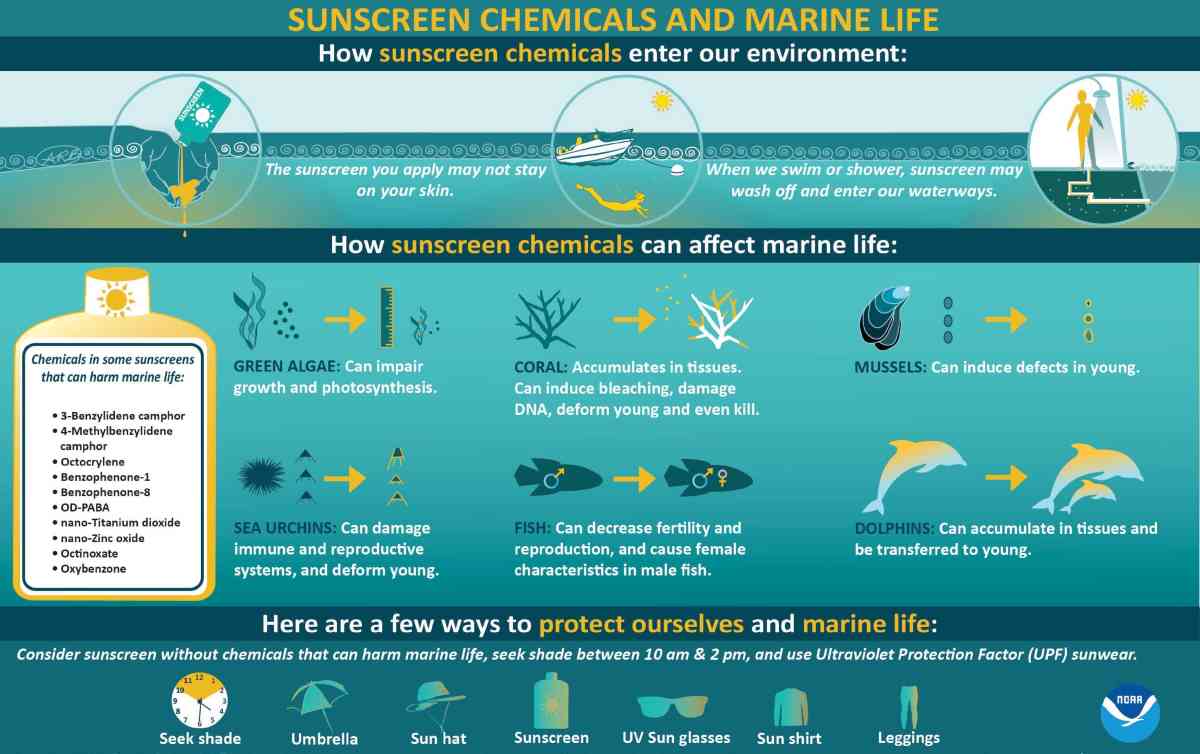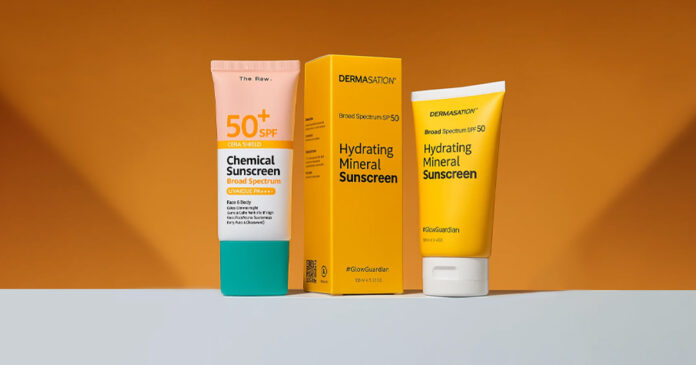You may have heard people around urging to make sunscreen a compulsory part of the skincare regimen, especially in this day and age. Well, they are your well-wishers, as there is no doubt that our skin definitely requires sunscreen due to the depletion of the ozone layer.
However, many people get stuck or overwhelmed by the options available.
Two types: mineral and chemical sunscreen, always stand out. But in this comparison of mineral vs chemical sunscreen, which one is more preferable and effective?
Well, the answer is subjective, and we will understand why.
Importance of Sunscreen: An Overview
Before we get into the depth of the two types of sunscreens mentioned above, let’s first discuss why application of sunscreen is important to start with and why almost every dermatologist now emphasises its usage.
What is it that dermatologists know that we are unaware of?
Well, first things first, everyone requires adequate protection from the sun’s rays, regardless of age, gender, skin type, or skin tone. It is an essential part of skincare for healthy skin, no questions asked.
Why? Applying a broad-spectrum sunscreen will protect your skin from UVA and UVB rays alike that may cause problems like premature ageing and sunburn, or worse, skin cancers like Melanoma.
According to the American Academy of Dermatology (AAD), the right sunscreen can help protect against sunburn, skin cancer, and signs of premature skin ageing like sun spots and wrinkles.
Studies by the Skin Cancer Foundation have also found that individuals who use sunscreen daily (SPF 15 or higher) show 24% fewer signs of visible skin ageing.
That said, not all sunscreens are created equal. There are two main types, chemical and mineral, and both have their pros and cons.
Mineral vs Chemical Sunscreen: Quick Comparison
Hopefully, now you know better than to skip sunscreen.
Now onto the most crucial part. Mineral vs Chemical sunscreen: what is the difference between them?
Mineral sunscreens use minerals like zinc oxide and titanium dioxide to create a physical barrier that reflects UV rays, while chemical sunscreens absorb UV rays and convert them into heat. Here is a detailed breakdown of them.
What is Mineral Sunscreen?
Mineral sunscreen, AKA organic/physical sunscreen, is known for having a heavier, thicker texture than chemical sunscreens. This sunscreen consists of ingredients like Zinc Oxide and Titanium Oxide that help reflect the ultraviolet rays by acting as a shield by forming a physical barrier on the skin’s surface that helps block and scatter harmful rays.
It is also partly why mineral sunscreens are sometimes also called “physical sunscreens,” implying that they block out UV rays like an umbrella deflects raindrops.
This is because the sunscreen actually sits on your skin’s surface, reflecting and scattering the UV rays away from your skin. Mineral sunscreens are usually opaque (not see-through) when applied and start working immediately upon application. This type of sunscreen can also be applied over other types of skin care products.
Currently, the only FDA-approved mineral sunscreen ingredients are zinc oxide and titanium dioxide.
“Mineral sunscreen ingredients, zinc oxide and titanium dioxide, are small particles that sit on the skin’s surface and physically prevent UV rays from penetrating the skin,” says Jennifer L. MacGregor, MD, a dermatologist in New York City.
Pros of Mineral Sunscreen
- Mineral sunscreens are generally gentler on skin compared to others and may be preferred for sensitive skin, dry skin, and eczema. They are less likely to cause irritation or allergic reactions compared to chemical sunscreens.
- Mineral sunscreens are much safer for people who are concerned about long-term exposure to chemical ingredients.
- Mineral sunscreens are less likely to clog pores and contribute to acne breakouts. They’re a good option for people with oily or acne-prone skin.
- Mineral sunscreens start working immediately upon application. Unlike chemical sunscreen, you don’t have to wait for the sunscreen to be absorbed before going out in the sun.
Cons of Mineral Sunscreen
- Can leave a noticeable residue, especially on darker skin tones
- May feel heavy on oily skin
- Can rub off easily with sweat or water
What is Chemical Sunscreen?
Chemical sunscreen contains…..chemical ingredients (if you didný know already, you would have guessed it).
Chemical sunscreen works differently. It contains ingredients like avobenzone, oxybenzone, and octinoxate, which absorb UV rays and convert them into heat, then release it from the skin.
These sunscreens are usually lighter in texture and easier to rub in, making them popular for daily use. Its ingredients work like a sponge, absorbing damaging UV rays before they can harm your skin.
Pros of Chemical Sunscreen
- It has an easy application because of its ingredients; chemical sunscreens can be applied more easily due to their more lightweight, blendable texture.
- Unlike mineral sunscreens, chemical sunscreens are usually transparent on your skin, without leaving a white cast.
- Chemical sunscreens often have better water resistance compared to mineral sunscreens. They can maintain their effectiveness for a longer period when exposed to water or sweat, making them a good option for outdoor activities and swimming.
- Depending on the formulation, chemical sunscreens may be easier to rub into the skin and may also be less likely to leave a white cast.
- Their non-chalky finish may make them ideal for those with darker skin tones.
- Those who opt for chemical sunscreens tend to choose them based on their versatility and lightweight texture.
Cons of Chemical Sunscreen
- It needs time to activate and needs to be applied 15–20 minutes before sun exposure.
- Can irritate sensitive skin, especially if you have rosacea or eczema.
- People have raised concerns about environmental damage regarding chemical sunscreen, as some of its ingredients may harm coral reefs.

Final Verdict: Which is Better?
There’s no one-size-fits-all answer. Your perfect sunscreen depends on your skin type, lifestyle, and personal preferences.
Yes, some prefer mineral sunscreen more after studies pointed out concerns over certain ingredients in chemical sunscreens, such as oxybenzone and avobenzone. According to a 2019 study, there was evidence that the active-ingredient chemicals in sunscreens may be absorbed into the bloodstream and cause side effects such as rashes.
But honestly, all is chemical at the end of the day (organic or inorganic), according to BBC News and many other experts. One scientific review also debunked that UV filters like avobenzone and homosalate can damage DNA or cause cancer in humans, and that blood levels of these chemicals from topical sunscreen are far below the amount at which they might have an effect.
Frequently Asked Questions (FAQs)
Here are some frequently asked questions about mineral vs chemical sunscreen that will clear further misconceptions.
Do Dermatologists Recommend Mineral Sunscreen?
Yes, many dermatologists suggest mineral sunscreen for people with sensitive skin, children, or skin conditions like eczema. It’s less likely to cause irritation and offers broad-spectrum protection.
Does Mineral SPF Last Longer than Chemical?
Not necessarily. Both types need to be reapplied every two hours when outdoors, especially after swimming or sweating. It’s more about how often you reapply than the type itself.
Which is Safer, Mineral or Chemical Sunscreen?
Mineral sunscreens are often viewed as safer for sensitive skin and the environment. However, chemical sunscreens are still FDA-approved and safe for most people when used as directed.
Stay tuned to Brandsynario for latest news and updates



































